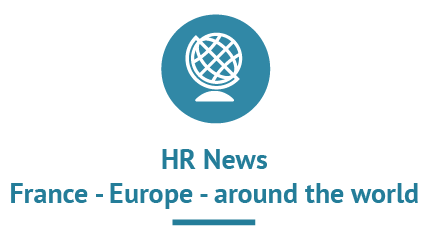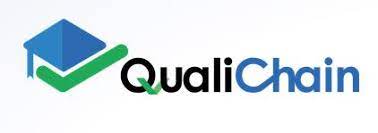|
If you are having trouble viewing this email, open it with your internet browser,
download the PDF version
or contact us.
|
 |
| #38 - October 2021 |
| PDF version - Manage your subscription - Search - Archives |

|
|
vision RH is a newsletter published by the French Directorate General for Administration and the Civil Service (DGAFP). It draws on information sources and reports issued by public administrations, the private sector, international organisations and the press, in several different languages. It aims to provide a broad view of current human resources and civil service initiatives.
|
|

|

|
| Helping parents and caregivers strike a better work/life balance | |||||
|
The responsibility of being a parent or a regular caregiver for a dependant often means needing to be available at times that aren’t always compatible with a standard work schedule. And so every measure designed to facilitate work/life balance can have a direct impact on the quality of life at work. Government employers are also coming to the same realisation, recognising that they need to do more to attract employees and also consider the needs of a changing society. The first bump in the road often comes with the birth of a child. To address this, paternity leave was introduced, but uptake is still not widespread as it is not always mandatory—although a European directive will make it so in 2022. In Spain, an agreement was signed with unions in 2021 to set paternity leave at 16 weeks for civil servants. The government wanted to create a “social pact for the future” to help eliminate the gender imbalance between the careers of mothers and fathers. Next, during the early childhood years, some parents may decide it makes sense for them to take time off work. That means transitioning to parental leave, the pay for which is often much lower, and it is women who take it in the majority of cases. Sweden has managed to reverse the trend by giving parents a combined total of 480 days, with 90 days specifically for fathers. And there are tax breaks for couples who decide to divvy up their leave allotment equally. Then there’s the issue of how parenthood impacts the pace of career advancement. In Estonia, unpaid leave taken to raise a child is factored into career progression decisions. The measure has helped lower the pay gap to less than 1% and ensure fairer access to promotions. And what parent hasn’t had to contend with an unplanned childcare emergency? In Germany, many government offices have dedicated parent-child rooms (Eltern-Kind-Zimmer) where employees can work while caring for their offspring in a kid-friendly environment. For parents with young children, a good alternative for gradually returning to work can be opting for a shorter work week, or even shorter work days. In Italy, parents get one month of paid leave per year for three years that can be either banked or taken in increments, down to the hour, allowing for a shorter work week without having to change to part-time status. And what about other types of caregivers? The United Kingdom civil service has introduced initiatives to help employees with caregiving responsibilities, which it estimates applies to 23% of its workforce. One such initiative is the carer’s passport, a document that records the flexible work arrangements made to help an employee combine work and caregiving. That way, these arrangements won’t need to be renegotiated in the event the employee changes roles, departments or managers. Faced with an aging population and the desire to stamp out a culture of presenteeism, Japan now requires public employers to either offer employees shorter working hours or cover the cost of caregiving responsibilities. Many countries, like France (1), have introduced dedicated caregiver leave, where employees are compensated either at a flat rate or at a percentage of their salary. In Belgium, it was decided that time )spent caregiving for a family member suffering from a loss of independence and requiring regular care will count toward retirement calculations (in terms of time). And in Canada, civil servants are now only required to pay the employee share of pension contributions made during a period of caregiving leave.
|
|||||
|
|||||
|
|
|||||

|
|||||

|

|

|
| France: more attractivity in the regional civil service | |||||
|
Four pilot regions in France (Grand Est, Hauts de France, the Greater Paris Region and Normandy) are participating in a project backed by the EU and the OECD to improve the attractiveness of the civil service in the country’s regions. It is a two-year project with three phases: clearly assess the situation, adopt a forward-looking view of best practices and initiatives to put in place, and contribute to strategic and operational recommendations to ensure improved management. |
|||||
|
|||||
|
|
|||||

|
|||||
| Sweden: promoting the values of the civil service work culture | |||||
|
The Swedish government has launched a campaign promoting the civil service’s core values—integrity, neutrality, objectivity and efficiency—as well as other aspects such as a strong management culture, a shared sense of mission and the importance of leadership. A toolbox has also been made available, including practical guides and situational exercises to help better grasp concepts. |
|||||
|
|||||
|
|
|||||

|
|||||
| Netherlands: the iLab HR innovation laboratory | |||||
|
The Dutch government’s HR division is now home to an innovation lab. Dubbed iLab, it is where the ideas and needs of HR professionals are turned into modern technical solutions. Creative thinking is encouraged, and the teams show that there are different ways to approach solving a problem. They are currently working with applied sciences students from two Dutch universities on developing an app to help manage hybrid working. « We encourage our colleagues and partners to think creatively. We experiment and put ideas into practice »
|
|||||
|
|||||
|
|
|||||

|
|||||

|

|
| Portugal: paid internship program for recent graduates | |||||
|
By giving interns work directly related to their field of study and paying them fairly, the Portuguese government hopes to encourage them to explore opportunities in the civil service and pursue a career there. With the EstágiAP XXI programme for recent graduates under age 30 (or 35 for disabled graduates), the government is offering 500 six-month internships paying a monthly salary of €998.50. |
|||||
|
|||||
|
|
|||||

|
|||||
| Italy: cooperation with universities on training | |||||
|
A memorandum of understanding was signed between Italy’s Minister of Public Administration and Minister of University and Research to give the country’s civil servants access to university training for their professional development. The memorandum lays out a framework for future collaborative initiatives to improve the level of employee training and professional development via access to diploma programmes. |
|||||
|
|||||
|
|
|||||

|
|||||
| OECD: skills framework and national best practices | |||||
|
After conducting a skills inventory of the public sector, the OECD developed a framework that builds on existing strengths, while also recognising that cognitive, social and emotional skills will continue to increase in importance. The international organisation provides a summary of the data it collected, showing how the various OECD member states stack up against each other. It also presents a number of best practices and case studies and provides a self-assessment questionnaire. « Cross-curricular, behavioral and analytical skills will play an important role for the public service workforce »
|
|||||
|
|||||
|
|
|||||

|
|||||

|

|
| Canada: Mentorship Plus, a diversity and inclusion initiative | |||||
|
The Canadian government has developed a new mentorship initiative to support members of underrepresented groups. The initiative is designed to help them navigate the system for upward career mobility, get increased visibility in informal networks and gain access to developmental opportunities to build the skills necessary for leadership positions. |
|||||
|
|||||
|
|
|||||

|
|||||
| Germany: TalentManager, a tool for project managers | |||||
|
It takes experience to put together the right team to deliver a project on time and on budget. With that in mind, the centre that provides project management advice to Germany’s federal government departments has developed a new self-assessment tool to help them determine whether a potential candidate is the right fit for a given role. |
|||||
|
|||||
|
|
|||||

|
|||||
| France: 2021 civil servant technology survey | |||||
|
With all the changes brought about by the pandemic, anticipation was high for the third annual survey of civil servants about workplace technology, and the participation rate was indeed up over previous editions. The survey covered four themes related to the work environment: equipment, tools and applications, networks and connectivity, and support and training. Three out of four civil servants report now being able to work from home. « Strong expectations in terms of support and training for mastering the new digital work environment »
|
|||||
|
|||||
|
|
|||||

|
|||||

|

|
| United Kingdom: Global HR Design | |||||
|
Global HR Design is the UK's new standard for all government HR departments. It is a new step in line with the creation of the HR Career Pathways introduced three years ago. The objective is to harmonise analysis and management processes by taking a user-centric approach (the users being civil servants) to ensure consistency across critical moments in the employee lifecycle, regardless of what department they work in. |
|||||
|
|||||
|
|
|||||

|
|||||
| Spain: personnel file updates | |||||
|
It is now possible for government employees in Spain to get real-time updates when a change is made to their personnel file. Employees can opt in with the department that manages the central personnel register and will receive a notification whenever any legally required information is added to their file (administrative decision, appointment/promotion/transfer order, sanction, termination of employment, etc.). |
|||||
|
|||||
|
|
|||||

|
|||||
| Ireland: a framework "Health and the civil servants' Wellbeing" | |||||
|
In line with the commitment made by the Irish government, the central human resources division published a document outlining the key components of a healthy workplace across five dimensions and 19 associated themes. The framework also includes examples of initiatives and measures that civil service departments and offices can put in place to support and enable employee health and wellbeing. It also identifies performance indicators that can be used to assess these measures. « A timely publication in light of the challenges and disruption of working environments for all public officials »
|
|||||
|
|||||
|
|
|||||

|
|||||

|

|
| Vinci helps young people find a career fit with its Give Me Five programme | |||||
|
Today’s tough job market is particularly hard on young jobseekers. Although their age and education should be assets for them, permanent positions are now harder and harder to come by. French group Vinci, a world leader in concessions and construction, launched Give Me Five, a programme of initiatives for students from underprivileged backgrounds. As its name implies, it is a five-part programme designed to follow students along their career path: • Career discovery internships are offered for students age 14–15 to observe the workplace and participate in workshops. • One-on-one coaching is included before, during and after these internships. • To help them integrate into the workforce, priority access is given to final-year internships (studying for an occupational proficiency certificate up to a 2nd-year master’s degree). • To improve the apprenticeship process, there is a dedicated platform for finding work-study schemes within Vinci’s companies. • In partnership with the AFPA, the STEP (1) integration programme helps high-risk youth get back on track to finding long-term employment. In 2020, the Give Me Five programme won a “100% Inclusion” award under the French Ministry of Labour’s skills investment plan.
|
|||||
|
|||||
|
|
|||||

|
|||||

|

|
| Blockchain technology being used to support recruitment in Greece’s civil service | |||||
|
A major issue for today’s civil service is how to optimise the recruitment process. In response to a European call for projects, which Portugal is also participating in, Greece has decided to put a burgeoning technology to use to help transform the status quo. At the start of 2021, the ASEP (Greece’s Supreme Council for Personnel Selection) signed a memorandum of understanding with the HBH (1) consortium and the University of Athens to use blockchain—a distributed ledger technology—to streamline and improve the recruitment process and make it more secure. Using the QualiChain platform, government departments will have access to new features and can offer personalised services to potential candidates. .
There are three groups of stakeholders: educational institutions (academic and vocational training), public employers and citizens. By distributing roles among these stakeholders, it is possible to perform a dual check of applicants’ degrees and other qualifications. Applicants are then encouraged to flesh out their profiles with as much additional detail as possible, self-reporting information about their skills, areas of interest and search criteria. Once that’s done, they’ll receive personalised notifications every time a well-matched job opens up, ranked in order of importance to help them with their decision making. They can apply to jobs directly from their account. For recruiters, a two-step applicant ranking module was developed specifically for senior positions and incorporated into the tool. First, it helps the recruiter with pre-screening in advance of interviews. Then it helps determine which candidate(s) would be the best fit for the position. According to the rollout team, the added value of this new model is significant, saving HR departments time on both background checks and analysing applications. The major asset of blockchain is its unique system for protecting information against forgery or alteration, using a cryptographic algorithm to ensure data integrity.
|
|||||
|
|||||
|
|
|||||

|
|||||

|
|
Share
|
||||
|
||||
| SUBSCRIBE - UPDATE YOUR SUBSCRIPTION - ARCHIVES - RSS - UNSUBSCRIBE |
|
French Directorate-General for Administration and the Civil Service (DGAFP)
Publication Manager: Nathalie COLIN Managing Editor: Nicolas de SAUSSURE Editor-in-chief and Autor: Jean-François ADRIAN Layout and graphic design: Jean-François ADRIAN and Aphania. The texts of the publication do not reflect the point of view of the DGAFP
In accordance to the French Act n°78-17 of 6 January 1978 on information technology, data files and civil liberties and to the european General Data Protection Regulation (GDPR), your personal data is stored securely and you are entitled to access, correct and delete them. To do so, you should send an e-mail to (contact-visionrh@kiosque.bercy.gouv.fr) or write to DGAFP: 139, rue de Bercy - 75012 Paris; France.
The links to a machine translation are accessible with the only Chrome browser Reproduction is authorized with mention of the source © DGAFP 2021 / N° ISSN: 2606-7528. |
|
|






